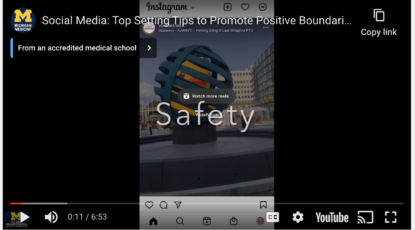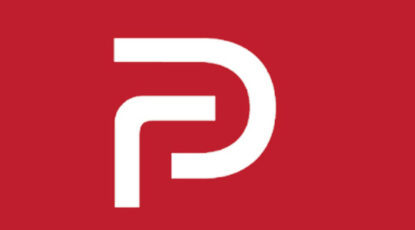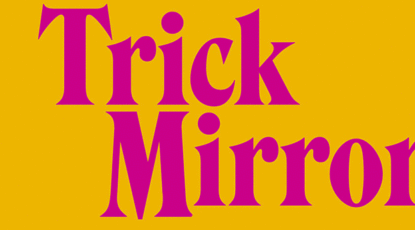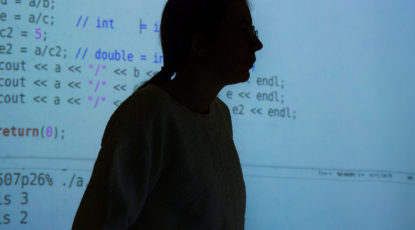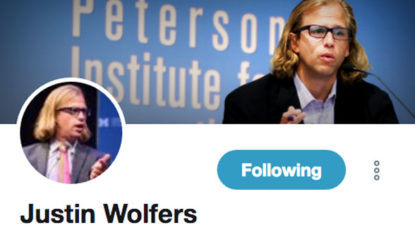-
Study: Average teen received more than 200 app notifications a day
A report explores tween and teen relationships with phones, offering families guidance to promote healthier technology habits. The top three most popular social platforms among 11- to-12-year-olds were TikTok, Snapchat, and gaming platform Discord.
-
Social media: Top setting tips to promote positive boundaries, mental health for young people
Experts share tech savvy ways to better manage and control social media use on Instagram, TikTok and YouTube for youth, teens and kids.
-
From rabbit hole to raging success
‘Depths of Wikipedia’ host Annie Rauwerda, BS ’22, only posts something to her 1.5 million social media followers ‘if it’s really zany.’ The comedian’s fans rely on her wiki-mining skills to unearth weird-but-true facts about trout tickling, Greek philosophers, and ancient Sumerian humor.
-
Is having bad information worse than having no information?
The move by social media companies to remove or suspend Donald Trump’s accounts and the decisions that led to the shutdown of Parler raise questions about the unchecked power of social media and its future.
-
How do we manage the unchecked power of social media?
Professor of Information Cliff Lampe ponders the future of social media in the wake of several platforms’ decisions to ban Donald Trump after the Jan. 6 insurrection at the nation’s Capitol.
-
Interest surges in ad-free, censorship-free social sites
Since November 3, people have been flocking to social media platforms Parler and MeWe, which promise ad-free or uncensored experiences.
-
The perils of social media and self-delusion
‘New Yorker’ essayist Jia Tolentino, MFA ’14, explores the ‘peculiar effects’ of self-deception, self-destruction, and the performance of identity in ‘Trick Mirror.’
-
‘Fake news’ detector outperforms humans
Algorithm identifies telltale linguistic cues and could serve as an effective weapon against misinformation.
-
#Socialscholars
U-M faculty demonstrate the power of public engagement through social media, influencing journalists, policymakers, and peers.


